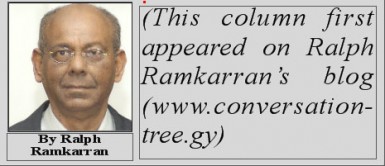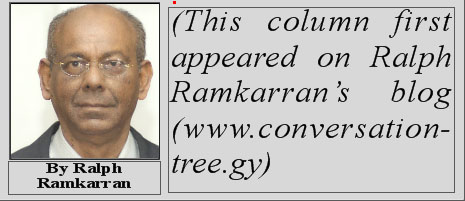The Russian Revolution, referred to as the ‘Great October Socialist Revolution,’ took place one hundred years ago on November 7 (October 25 on the calendar in force in Russia at the time). Although the revolution was inspired by noble ideas and ideals, mainly the elimination of exploitation and poverty and the creation of a party to represent the interests of the working class to do so, it did not survive the 20th century. China and Vietnam claim to be building ‘socialism’ with their own characteristics, while establishing capitalist economies. Once ‘progressive’ developing countries have all been ensnared by globalization and neoliberalism.

The Russian Revolution, the Chinese Revolution, the Vietnamese Revolution, the Cuban Revolution, all added distinct features to the various methods by which colonialist or imperialist oppression could be overcome. Peaceful means were also adopted and perfected in many countries, not only in colonies but in countries where dictatorships had been previously installed. Along the way, means were found by communists to collaborate with ‘anti-imperialist’ revolutionaries, called ‘revolutionary democrats,’ who were not fully ‘Marxist’ or ‘Marxist-Leninist.’ The techniques of economic development for countries with colonial or colonial-type economies were developed, called the ‘non-capitalist’ path of development. This path included, and even recommended, selected strategies of capitalist development. These new ideas proliferated under the banner of the ‘national liberation’ revolution.
Guyana escaped neither these developments nor the Cold War which was launched by the West against the USSR, the existing ‘socialist’ countries and those threatening, as perceived by the West, that they might go ‘communist.’ This policy swept up patriotic leaders, democrats and others who merely sought to protect and defend their peoples and economies, such as Mossadeq of Iran who was overthrown by the CIA in 1953 and Arbenz of Guatemala, who was similarly removed in 1954. Just as the origins of the past and present difficulties in those countries can be traced to those events, so the developments in Guyana can be traced to the removal of the PPP by the British government in 1953, acting against a leader who was then much in the mould of Mossadeq and Arbenz, heading a broad-based, mass party, the PPP, which had a left but moderate leadership with a patriotic orientation.
After the second overthrow in 1964 Cheddi Jagan and the PPP grew increasingly left. Feeling betrayed by the West, the PPP embraced the world socialist movement in 1968. Forbes Burnham, who initially led a ‘moderate’ break-up of the PPP in 1955 and formed the PNC, with pro-Western help and credentials, eventually also led the PNC to the left. The Sophia Declaration of 1974 and subsequent statements left no doubt that Burnham and his party had embraced socialism and Marxism-Leninism.
Like elsewhere, ‘socialism’ failed in Guyana. In addition to the state of the world economy, the drying up of aid and the rise in oil prices, there were specific Guyanese factors. The success of socialist policies requires a democratic foundation, namely, the unity of the working class and their mobilization behind the policies. The failure to introduce democratic means of economic administration and electoral democracy, even with the protections for the minority offered by the PPP under the national patriotic front (where the majority party would concede the executive presidency to the minority party), ensured that the ‘socialist’ experiment would fail. But during this era, motivated by ideals, Guyana orchestrated the Caribbean’s recognition of Cuba, opened diplomatic relations with China and was a Non- Aligned Movement leader.
The PPP and PNC have now abandoned all pretence of being influenced by socialist ideas and, except perhaps for a few diehards in the PPP, would not even utter the word. But the enduring popularity of socialist ideals for which, by the way, there is a resurgence in the USA and UK, is an obstacle to its formal elimination in stated party policies and influence in party structures.
It may well be that the leaderships of today have no patience with, and have given short shrift to, that past and its ideals and, having abandoned it, would like to bury and forget about it as quickly as possible. Annual homage to their past leaders omit any references to socialism. And its absence shows. Their social and economic objectives have no grand plan, no overarching philosophy, no inspirational political or economic principles, no people-centred objectives, no plan to eliminate ethnic dominance in politics. The noble objectives of socialism, elaborated in documents such as The New Global Human Order and others, where it is demonstrated how poverty could be eliminated in the world with modest reforms and the will of Western countries, are no longer a part of our national discourse. Only coarse insults to the intelligence and to the person remain.





